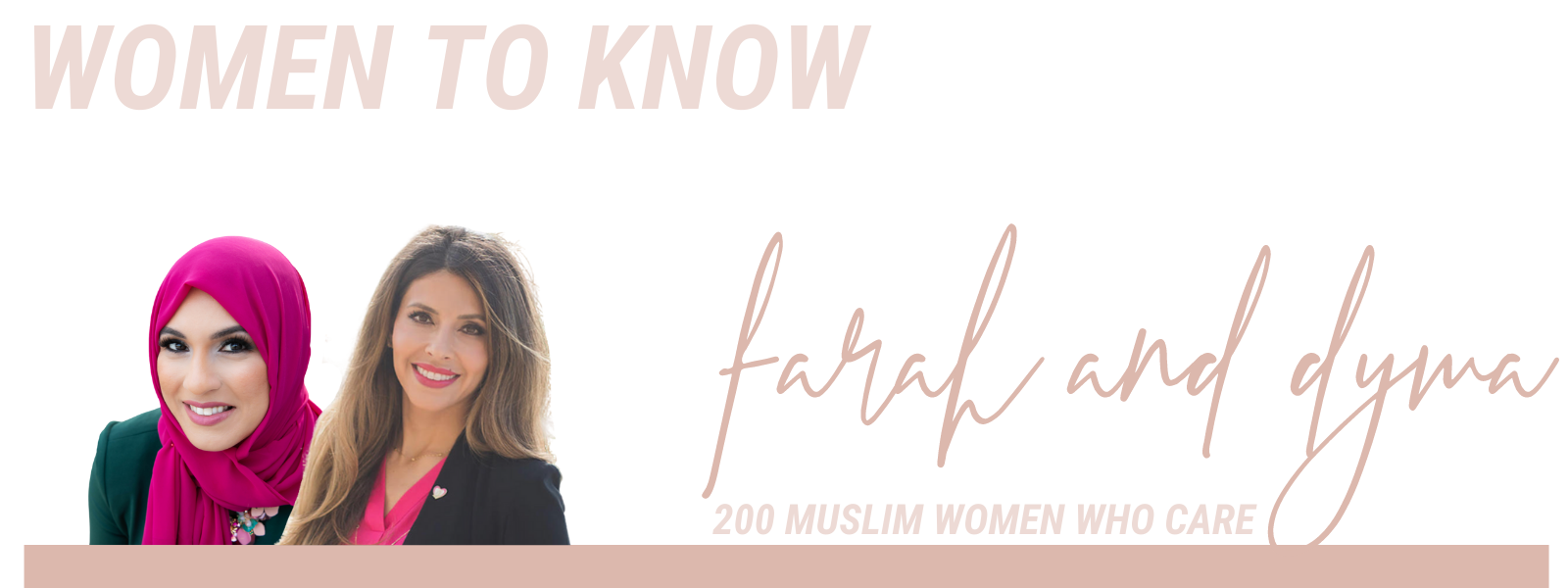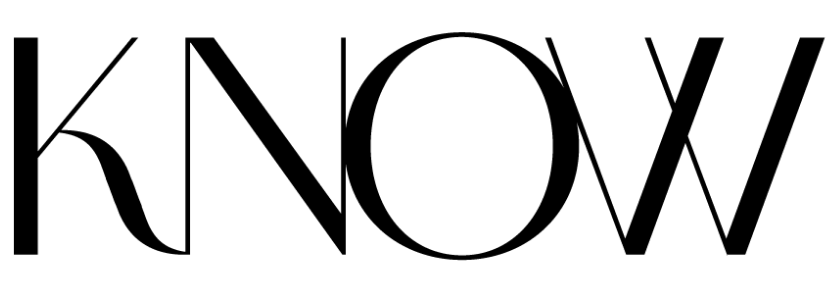HONORING “AMANAH” AND WHAT IT REALLY TAKES TO STEP INTO YOUR CALLING
By Julie Tingley, The KNOW Women

““The best neighbor to God is the best to his neighbors – Muhammad (peace be upon him).” Although we do not classify ourselves as a religious organization, our members are women who are connected through faith. This quote is a constant and beautiful reminder of why our Board of Directors and members volunteer their time to the organization and work to fulfill our mission to empower women to give back to local causes, uplift our neighbors, and create positive long lasting change in our community.” – Farah Modi-Khan
Founders of Tampa Bay-based nonprofit 200 Muslim Women Who care, Farah Modi-Khan and Dyma AbuOleim met years ago upon discovering that they both shared a passion for service. From their children’s schools to their involvement with other local nonprofits, the women of Islamic-faith took interest in the issues impacting their communities, and noted that many Muslim women they met along the way felt compelled to do the same.
As a group of 200 members grew through the years, the women followed the guiding principle that making an impact and doing work in their community was so much bigger than reclaiming the narrative of what it means to be a Muslim woman. The women were choosing this path because it is the right thing to do, and because they were upholding their faith in its utmost excellence. Combating Islamophobia was secondary to the joy that came from what God has led them to do.
The realization that the purpose for one’s life is far bigger has come with its fair share of challenges. But not even failure could stand in the way of Farah and Dyma’s heed to the call, understanding the chance of their meeting, and accepting the possibilities of what they could create together. With their sights on expanding their mission to other cities across the country, they met with us today to share what we should KNOW about answering the call to serve and growing a movement.
“Look at how far you’ve come, notice the impact you had on someone else and be grateful for what’s right in your life rather than what’s wrong. Doing so gives you more strength and helps you bounce back from the trials of challenging times.” -Dyma Abuoleim
KNOWing this journey was ahead of you…
Many years ago when my children were in preschool, I ran into a mother named Amber Watt who was putting flyers in our children’s take-home folders. I was lucky enough to start chatting with her, and she told me about how she wanted to start a local chapter of 100 Women Who Care Southshore. I attended her first meeting and fell in love with the concept of pooling our money to make a bigger impact. I heard about local charities doing great work with limited resources. I understood immediately that this simple concept could have an even bigger impact if I could just get more people involved. After six years of learning in that group, and with the help of Farah, I decided to start my own. A primary motivation was location—we knew that if we started holding meetings near our network, we could get many of our friends and Muslim sisters involved. By moving our meetings closer to them, we were able to encourage attendance and as a result, membership. We also decided to have a dual purpose of supporting local charities and Muslim-led initiatives so that young Muslim-led charities could have a sustainable support system and continue positively impacting the community. Without Amber Watt and her mother Ann Rand’s initiative, I would never have stumbled upon this important work. Amber’s simple act of caring had amazing ripple effects on my life and by extension, our organization and our community.
When you discover your passion, it is really easy to stay the course, especially when you realize the work you do is for others. I love Salim Ismail’s book, “Exponential Organizations,” which teaches about creating Massive Transformative Purpose (MTP) in your organization. This MTP is an organization’s higher, aspirational purpose. A profit motive alone is insufficient to build any start-up; rather it is the passion to solve a complex problem that keeps an entrepreneur pushing along the rocky road that is the story of every startup.
Staying the course begins with finding purpose. We are an all-volunteer board. We do not get paid for the work we do, and honestly, I never realized how hard things would get. This passion project turned out to be a full-time job that I had not planned for. However, I remind myself that my purpose is not recognition or money. I am fortunate to be blessed with the network and resources to carry out the mission of this organization. Every time my feelings get hurt or ego sets in, I give myself a nudge and say: “Dyma, are you doing this for yourself or to please God?” When I answer with God, I feel a sense of relief and can handle any problem that comes my way.
KNOWing that taking the road less traveled meant it would be bumpy…
When we founded the organization, I had such high expectations of gaining 200 members right from the very start. I was so confident that people would see its benefits, that when we didn’t reach our 200-member goal by the end of our first year, I felt like a failure. Although I was disappointed, I didn’t let myself become discouraged. I reminded myself of what Nietzsche said: “He who has a why to live can bear almost any how.” I accepted that it would take time to gain members and that we had already accomplished something meaningful. More importantly, I learned that success means moving forward despite setbacks and that making progress is as valuable as reaching the goal. It helped that I intentionally surround myself with others who believe the same, people like founding member Janan Siam who uplifts me constantly by reaffirming the importance of our progress over the perfection of reaching the goal.
In February of 2020 two great things had just happened for our organization that I knew would open doors for us, help us retain our members, and create more collaboration opportunities with other nonprofit organizations in Tampa Bay: First, we had just come off of our most successful fundraiser to date and second, we had our highest attendance for our in person quarterly meeting with our members, including a social hour at the end of the meeting that our members absolutely loved.
We were hopeful and excited, looking forward to the amazing things in store for our organization that year when suddenly the world shut down as we found ourselves in the middle of a global pandemic. At first we were completely devastated but hopeful the pandemic would be over soon and we could return to the way things were. When they did not, we quickly realized that our organization was needed now more than ever to provide the women in our community a way to get together and mobilize in an otherwise helpless situation. With our team we figured out how to keep the momentum of our organization going and pivoted to a mostly digital model quickly, strategically and successfully.
KNOWing that success looked different in this space…
“Did we help one person?” The answer to this question is my measure of success. It is what
keeps me going on a daily basis. This impact is key in the nonprofit world. If it benefits one, does it hold potential to help more? Every time I am exhausted from motherhood, work, and life, I am reinvigorated by learning about someone who benefited from our work, and this happens at the end of each of our meetings and every check presentation. Recently, we held a free, 8-hour Youth Mental Health First Aid Training for our community. It was a long day, and I
was exhausted. But at the end, a woman spoke through tears about how badly she had wanted to learn about this topic. Another woman spoke up about how she had wanted to take the course back in college but couldn’t afford the $170 fee. I realized—once again—that our work is important. If I’ve helped just one person, that is success, and it motivates me to push forward.
You will make mistakes, it is inevitable. I believe the hardest part for women in leadership positions is to be ok with not knowing all the answers and committing to learning and growing throughout the journey. Having that kind of self-awareness is imperative to any woman in a leadership position and acknowledging it, sometimes apologizing for, and learning from it is part of the process of your growth and development as a leader. As Founders, we have definitely made our share of mistakes, but our saving grace is that we learned to surround ourselves with a very diverse board of intelligent women of different backgrounds and skill sets who we have come to rely on and listen to when making higher level decisions.
KNOWing what it takes to stay the course in trying times…
I define resilience as moving forward and staying true to your purpose even when things go wrong. In Arabic, we have a word called “amanah” which means to uphold trust or fulfill your
obligations and moral duty when someone has placed their trust (or money) with you. This is a big responsibility to me. I have an obligation to be resilient and to stay the course because people trust me to be responsible with their funds and to make sure that our resources are going to reputable organizations. I also believe that optimism is a necessary component of resilience. It is important to view the effects of bad situations as temporary and shift your mindset to how you can learn from the mistakes. Look at how far you’ve come, notice the impact you had on someone else and be grateful for what’s right in your life rather than what’s wrong. Doing so gives you more strength and helps you bounce back from the trials of challenging times.
KNOWing what you learned along the way that others should know too…
I have seen many nonprofits struggle because they don’t have a diverse group of board members. Boards should reflect the people that they serve, and representation matters. For example, we see boards of only men that serve females. You can’t see all the possibilities if you all look through the same lens. If it’s difficult to assemble such a board for financial barriers to the participant, consider putting together advisory boards.
Though it’s important to seek out a Board of Directors with different perspectives, it’s just as important to ensure that the founders share a common vision. Although Farah and I have different personalities, we share the same vision. This does not mean your board members should agree all the time. In Adam Grant’s fascinating new book, “Think Again,” he talks about “thoughtful critics;” those are “disagreeable people who are givers not takers. Disagreeable givers often make the best critics. Their intent is to elevate the work, not feed their own egos. They don’t criticize because they are insecure, they challenge because they care. They dish out tough love.’’ You can easily recognize the disagreeable giver because they will help the organization and commit their time and talent to seeing it succeed. Steer clear of those who like to give their opinion but don’t bother with giving their time.
CONNECT WITH FARAH + DYMA
Email: info@200mwwc.org
Website URL: https://www.200mwwc.org/
Instagram URL: https://www.instagram.com/200MWWC/
LinkedIn: https://www.linkedin.com/company/200-muslim-women-who-care/
MORE STORIES

